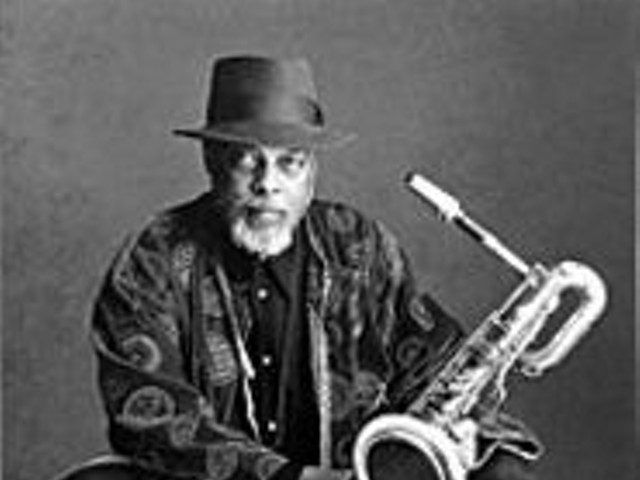But everyone needs their rainy-day music, songs that can play softly, be listened to unconsciously, while rain beads on the screen and a book takes up most of the listener's attention. And since 1996, the Darla record label has been putting out rain music with their Bliss Out series: discs from indie rockers, electronic artists and just plain musicians who are willing to slow down their styles and let their music breathe. Now, as the label prepares to release their twentieth in the series, the Bliss Out discs stand out as a splendid catalog of every permutation of the chill-out music that Eno pioneered.
Eno, best known as either the keyboardist for glam pioneers Roxy Music or the producer of U2's best stuff, explained in a 1978 interview that ambient music needs to "be able to stand interruption, [and not]conflict with conversation." It's polite music. Maybe no record of the past ten years has been as polite as Japancakes' Belmondo, volume nineteen of the Bliss Out series. Sprawling and psychedelic, yet mannered, with taped looped violins, pedal steel echoes and glacial rhythms, none of the tracks from Belmondo will be used for the soundtrack to Fight Club II.
"It's really good chill-out music," agrees Japancakes bass player Nick Bielli. "We were slack and burnt [when we recorded Belmondo]. It let us come down. And I think that if musicians listen to it, there are some interesting things going on. We're not Yngwie Malmsteen, but it isn't simple."
Indeed, a lot of the discussion of Bliss Out albums gets into territory beyond the ken of most music fans. Terms like "atonal," "modal" and "harmonic composition" don't mean much to most people. Good thing those words don't need to be understood to enjoy ambient music. Or even to play it -- Eno has famously claimed that he isn't even a musician. Ambient music is more closely related to visual arts like paintings, reflected upon and absorbed over time, as opposed to a pop song that is crammed into your head over the space of three minutes. American Analog Set's Late One Sunday (Bliss Out, volume 9) takes Eno's idea to the extreme with its track "The Following Morning": deceptively simple xylophone notes move up and down, up and down, over and over while a one-finger keyboard line rolls back and forth and an egg shaker keeps a gentle, persistent rhythm. You can't hum along; you can't tap your toes. You're a captive of the music.
"One of the interesting things about the ears," Eno has explained, "is that they work the same way a frog's eye works. Our eyes are always moving, but a frog fixes its eyes on a scene and leaves them there. It stops seeing all the static parts of the environment, which become invisible, until something in the environment moves."
Anyone who has ever seen a band such as Japancakes perform can attest to the static power of the music: the eerie silence of a crowded bar with no one hollering drink orders or whooping. When everyone is straining in the quiet to capture the music for themselves, you truly know that music hath charms to soothe the savage breast.
"It's definitely introverted," says Bielli. "Mostly people just listen."
Certainly, this isn't music for every time in your life. Bielli, who considers himself mainly a "metalhead," knows that there's a time and place for people to grab the Bliss Out albums such as Belmondo:
"[When they're] trying to go to sleep," he jokes, but it's true. Lester Bangs (the music journalist demigod who was immortalized by Phillip Seymour Hoffman in Almost Famous) slipped into a half-sleeping trance the first time he heard Music for Airports, visualizing an interview with Charles Mingus that never took place. With twenty titles to choose from, the Bliss Out series allows you to pick the type of reverie you're looking for. A Trick of the Sea (volume 13), by Piano Magic, sets you adrift amid ice floes. MUS's Aida (volume 17), with its Asturian vocals, drops you in the mountains of Northern Spain. Or you can listen to the fuzzed-out dream-pop of Sweet Trip's excellent Halica (volume 11), with its shimmering shoegazer guitars and abstract beats that will take you to Mars, if that's where you want to go.
From the first Bliss Out record (the electronic duo Flowchart's epic, droning Tenjira), Darla has been making frogs out of all of us, pinning us down and transfixing our ears on music unmoving yet vital, subtle but overpowering. Brian Eno should be proud.





